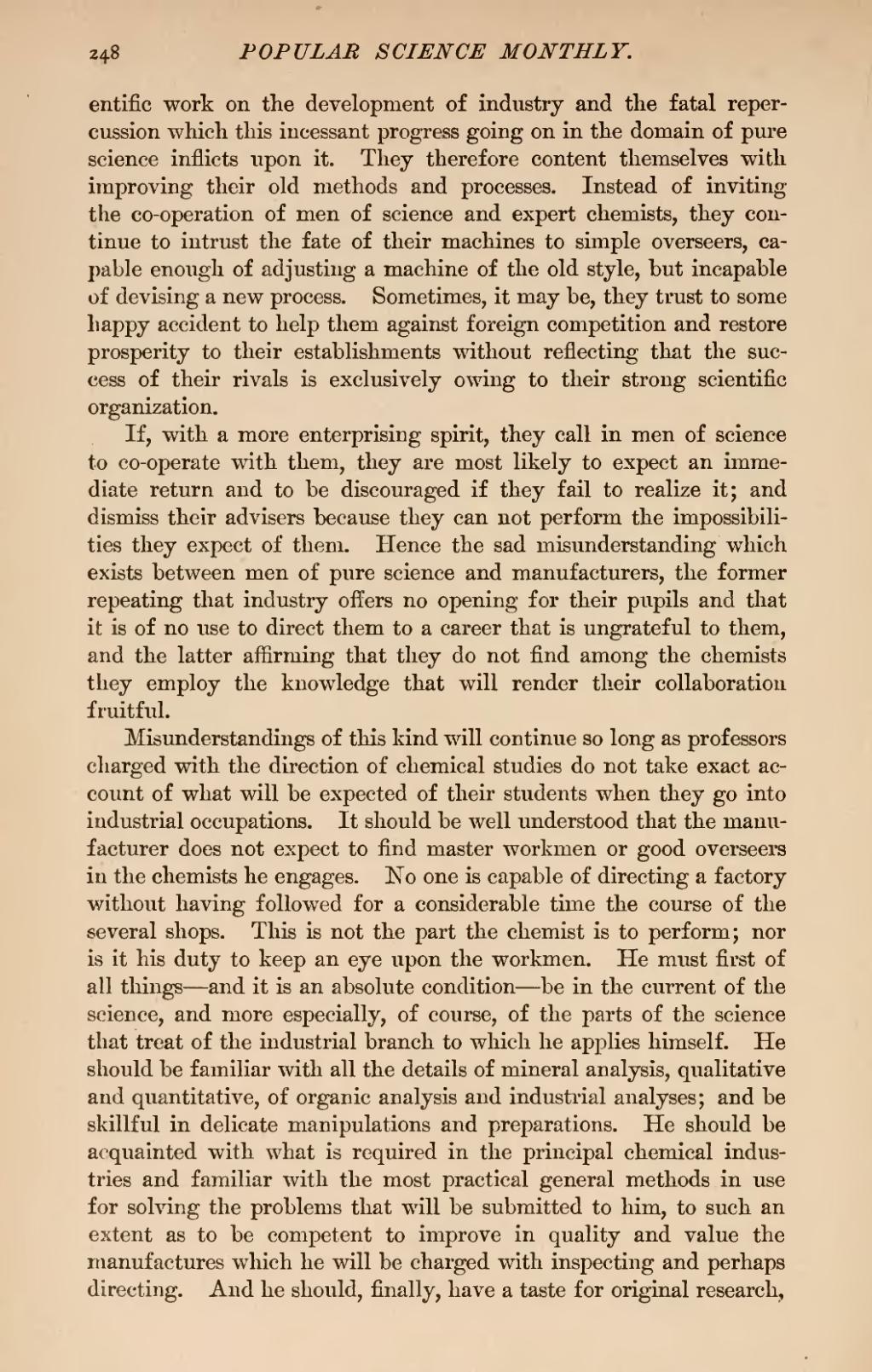entific work on the development of industry and the fatal repercussion which this incessant progress going on in the domain of pure science inflicts upon it. They therefore content themselves with improving their old methods and processes. Instead of inviting the co-operation of men of science and expert chemists, they continue to intrust the fate of their machines to simple overseers, capable enough of adjusting a machine of the old style, but incapable of devising a new process. Sometimes, it may be, they trust to some happy accident to help them against foreign competition and restore prosperity to their establishments without reflecting that the success of their rivals is exclusively owing to their strong scientific organization.
If, with a more enterprising spirit, they call in men of science to co-operate with them, they are most likely to expect an immediate return and to be discouraged if they fail to realize it; and dismiss their advisers because they can not perform the impossibilities they expect of them. Hence the sad misunderstanding which exists between men of pure science and manufacturers, the former repeating that industry offers no opening for their pupils and that it is of no use to direct them to a career that is ungrateful to them, and the latter affirming that they do not find among the chemists they employ the knowledge that will render their collaboration fruitful.
Misunderstandings of this kind will continue so long as professors charged with the direction of chemical studies do not take exact account of what will be expected of their students when they go into industrial occupations. It should be well understood that the manufacturer does not expect to find master workmen or good overseers in the chemists he engages. No one is capable of directing a factory without having followed for a considerable time the course of the several shops. This is not the part the chemist is to perform; nor is it his duty to keep an eye upon the workmen. He must first of all things—and it is an absolute condition—be in the current of the science, and more especially, of course, of the parts of the science that treat of the industrial branch to which he applies himself. He should be familiar with all the details of mineral analysis, qualitative and quantitative, of organic analysis and industrial analyses; and be skillful in delicate manipulations and preparations. He should be acquainted with what is required in the principal chemical industries and familiar with the most practical general methods in use for solving the problems that will be submitted to him, to such an extent as to be competent to improve in quality and value the manufactures which he will be charged with inspecting and perhaps directing. And he should, finally, have a taste for original research,

